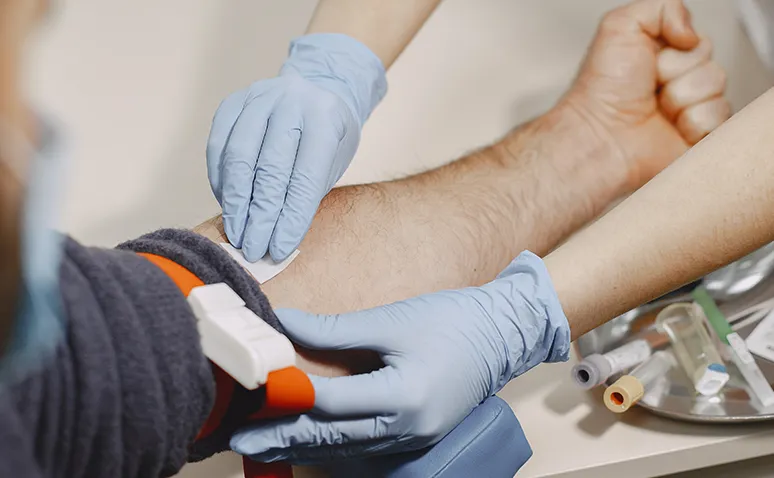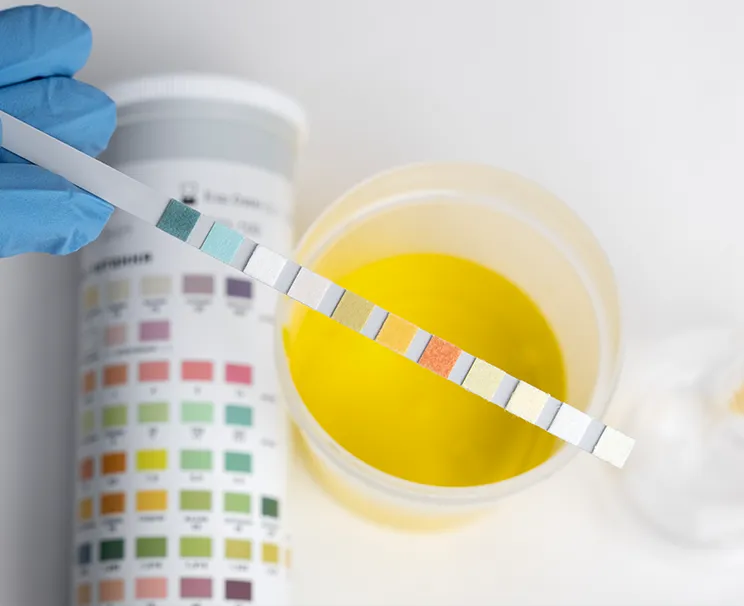NIPT test is a non-invasive screening method that allows the examination of the baby’s DNA through a sample taken from the expectant mother’s blood. It offers a high accuracy rate, especially in detecting chromosomal disorders such as Down syndrome (Trisomy 21), Edwards syndrome (Trisomy 18), and Patau syndrome (Trisomy 13).
NIPT test can be performed from the 10th week of pregnancy onwards and provides results without any physical intervention to the baby. The purpose of the test is to assess the risk of chromosomal abnormalities at an early stage. This enables more detailed examinations through advanced diagnostic tests when necessary. NIPT can also be applied in twin pregnancies and provide additional information such as gender determination. Although it is especially preferred in high-risk pregnancies, it can also be used for routine screening purposes.
NIPT Test Price
The NIPT test price may vary depending on the equipment of the healthcare facility where the test is performed, the up-to-dateness of the technology used, and the scope of the service. This test is one of the modern screening methods preferred to assess certain genetic risks during pregnancy.
In Türkiye and worldwide, prices may vary between private and public healthcare institutions. Especially when the test is carried out in cooperation with foreign laboratories, it becomes a significant cost factor.
NIPT test result reports generally include a detailed genetic evaluation. During the test, fetal DNA fragments belonging to the baby are analyzed from a blood sample taken from the mother’s arm. This collected blood sample is sent to the relevant laboratory for competent genetic analysis.
The sensitivity of the devices used in this process and the reporting time can be determining factors in the price. In addition, some institutions may include genetic counseling services in the price.

The main factors affecting the price of genetic screening tests during pregnancy are:
- Whether the test is performed domestically or abroad
- The reporting time (short or long)
- Inclusion of additional genetic screenings
- The technology used and the quality of the equipment
- Counseling services offered
The prenatal NIPT test not only evaluates the risk of chromosomal disorders but also helps families make more informed decisions during pregnancy. Therefore, it is recommended that individuals planning to have the test consider not only the cost but also the scope of the test, reporting quality, and expert support.
When researching prices, choosing centers that offer reliable and scientifically standardized services will be a more accurate long-term choice.
How is the NIPT Test Performed?
The question “How is the NIPT test performed?” is one of the most frequently asked by expectant mothers who want to know their baby’s genetic health during pregnancy. This test is among the new-generation screening methods developed to evaluate the genetic health of the baby during pregnancy.
During the procedure, the NIPT non-invasive prenatal procedure is used, known for being non-invasive. This test was developed to assess whether the unborn baby has chromosomal abnormalities.
The application process consists of the following steps:
- Once the pregnancy week is appropriate, a blood sample is taken from the expectant mother.
- In the sample taken, cell-free DNA fragments containing the baby’s genetic material are isolated.
- This sample is analyzed in a competent laboratory and examined for chromosomal diseases.
- The results are sent to the physician and shared with the family for use in pregnancy follow-up.
This test does not completely replace other screening tests used in pregnancy follow-up but offers a higher accuracy rate.
As a screening test, NIPT is an important source of information in high-risk pregnancies or cases with a family history of genetic disorders. If a specific chromosomal disorder is suspected in the test results, additional diagnostic methods are used to confirm it.
This method, which is considered medically safe, provides information without harming the health of the mother and baby. For this reason, it is widely preferred by families who want early evaluation in terms of chromosomal abnormalities.
Frequently Asked Questions
It examines the baby’s DNA fragments to assess potential chromosomal disorders.
The price may vary depending on the institution, technology used, and additional analysis scope.
For a definitive diagnosis, advanced genetic tests such as amniocentesis or CVS are recommended.
It can usually be performed from the 10th week of pregnancy onwards.
Standard NIPT applications do not screen for SMA; additional genetic tests are required.
It is useful in helping to determine chromosomal risks at an early stage.
Tests with broader scope, higher accuracy, and faster reporting are preferred.
It can also be applied in multiple pregnancies, but the interpretation process may be more complex.
In rare cases, false positives or negatives can occur.
For a detailed evaluation regarding the NIPT test applied during pregnancy, you can contact Denge Tıp.











